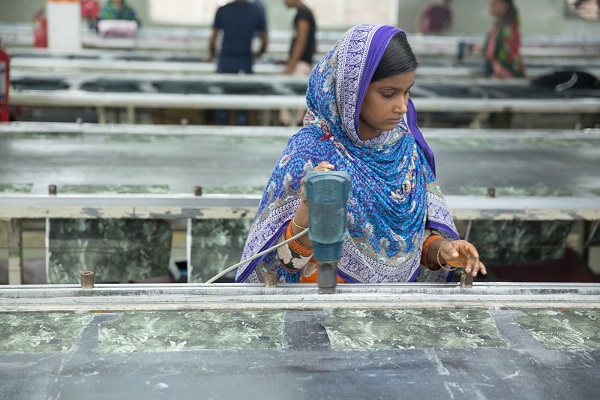 Textile sector in Bangladesh;
Textile sector in Bangladesh;
As part of the Rethink your Clothes initiative, led by Caritas Luxembourg and Fairtrade Lëtzebuerg with the support of the Ministry of Cooperation and Humanitarian Action, the premiere of the "Rethink Your Clothes" awareness campaign took place on Tuesday 11 December 2018 at Benu Villlage in Esch-sur-Alzette.
Directed by Charlotte Bruneau, the short film addresses the problem of the violation of human rights in the textile sector. Two young women, Salma and Katy, are looking for alternatives to Fast Fashion, a phenomenon that keeps textile workers below the poverty line and affects consumers by inciting them to overconsumption. From Bangladesh to Luxembourg, they turn their thoughts into concrete actions and adopt small gestures as alternatives to this production model.
The film is intended as a tool for education for global citizenship. In this sense, it makes it possible to analyse global issues in a systemic approach, to confront this analysis with personal values, and also to take a stand and make choices. This translates into the implementation and participation in individual or collective actions. Mainly aimed at young public high school students, the film is available via www.rethinkyourclothes.lu.
The evening continued with the intervention of Carole Crabbé, director of the NGO achACT- Actions Consommateurs Travailleurs. She began by defining the concept of a living wage, which should allow a worker and his family to live decently. It must cover food, health, education, clothing, transport and also savings and recreation. To earn a living wage in return for work is a basic human right. Yet this right is constantly flouted around the world. Whether in Asia, Eastern Europe, Turkey or North Africa, the clothing sector is systematically characterised by the payment of remuneration 3 to 5 times lower than the living wage.
She also pointed out that "garment workers" - women in particular - receive only a tiny share of the value created in the supply chain. These people find themselves caught in the vicious circle of poverty: excessive overtime, indebtedness, extreme dependence on their jobs, which further increases their vulnerability. The introduction of vital wages is essential, so that the transition to a globalised economy can also contribute to the economic growth of producing countries and allow them to develop in the long term. The claim for a living wage is therefore a "global demand for a fair distribution of the wealth produced," said the NGO.








